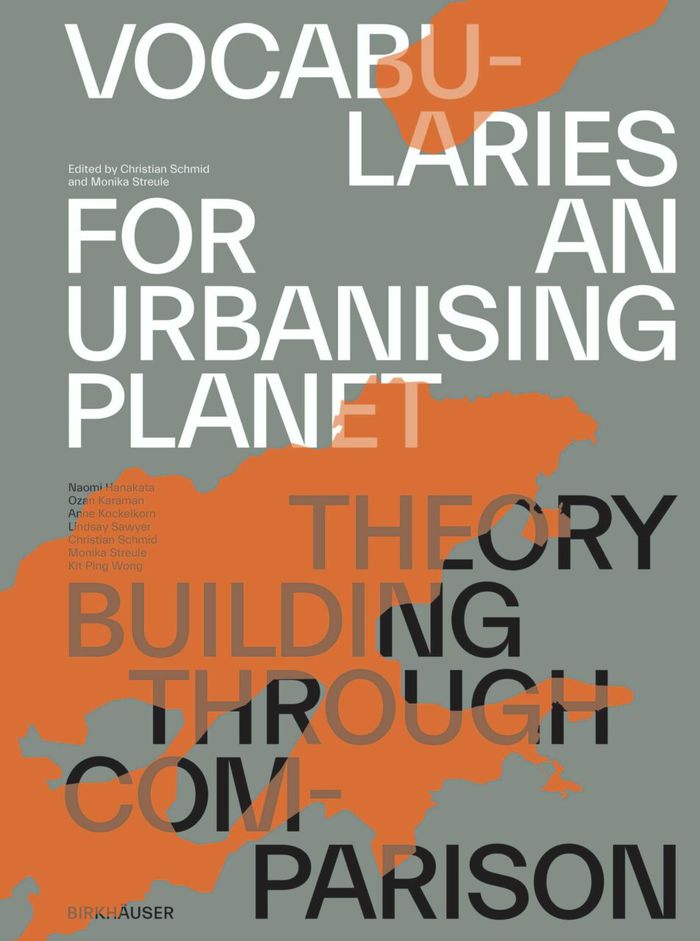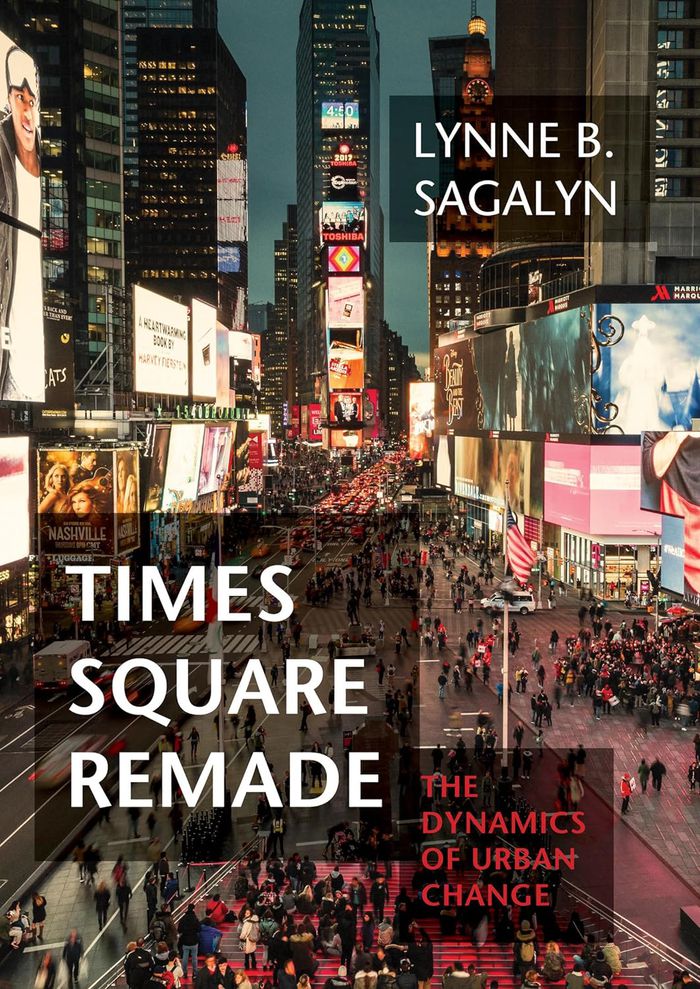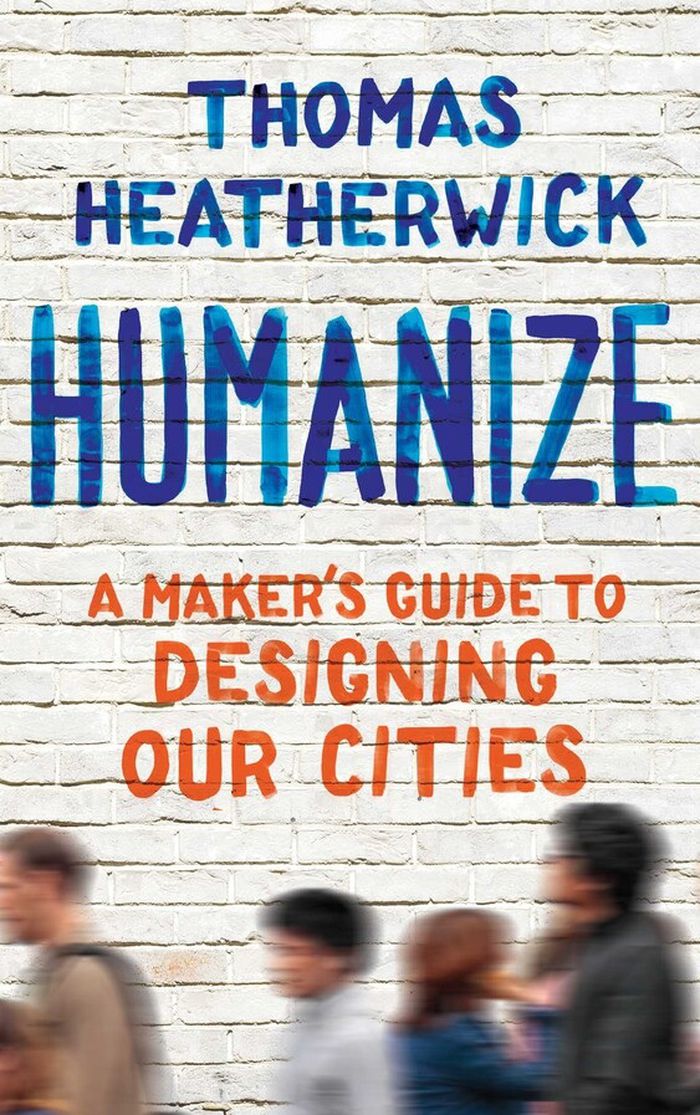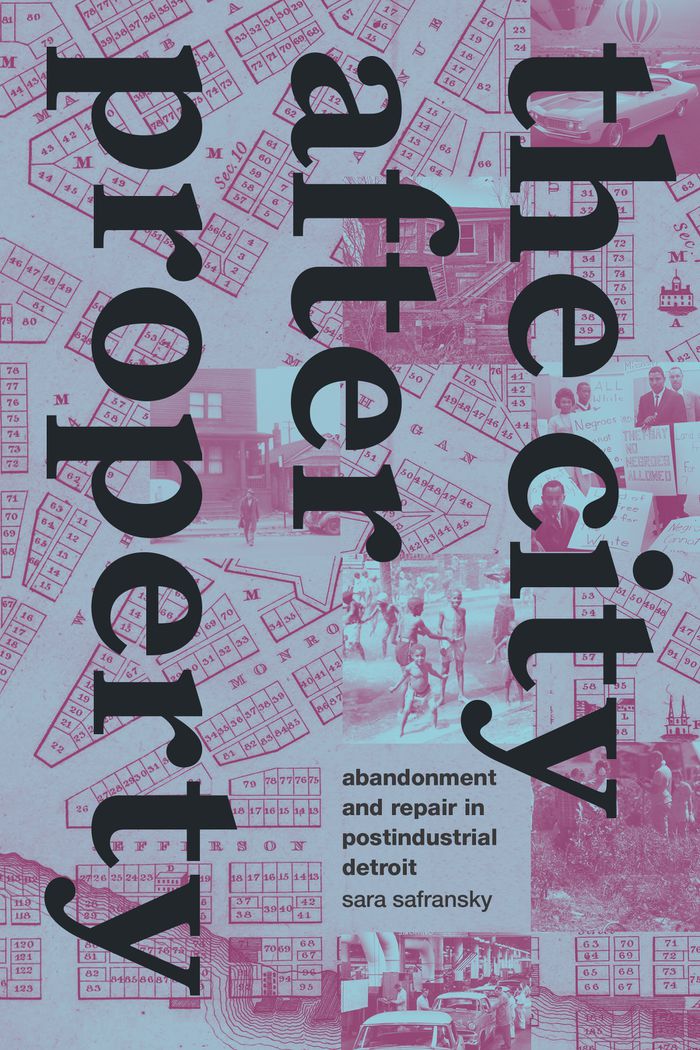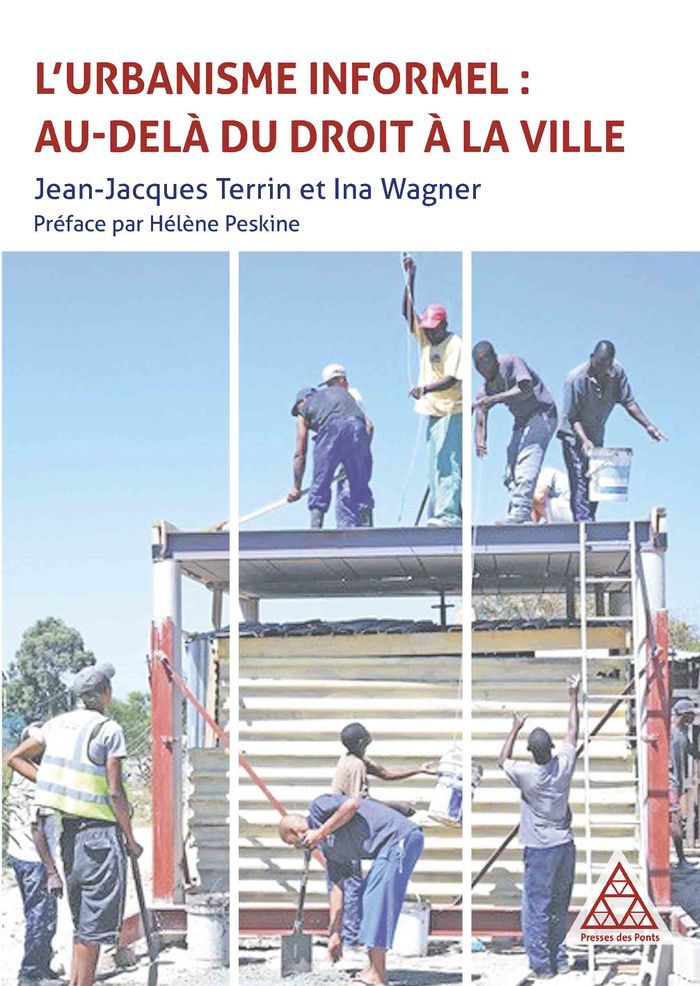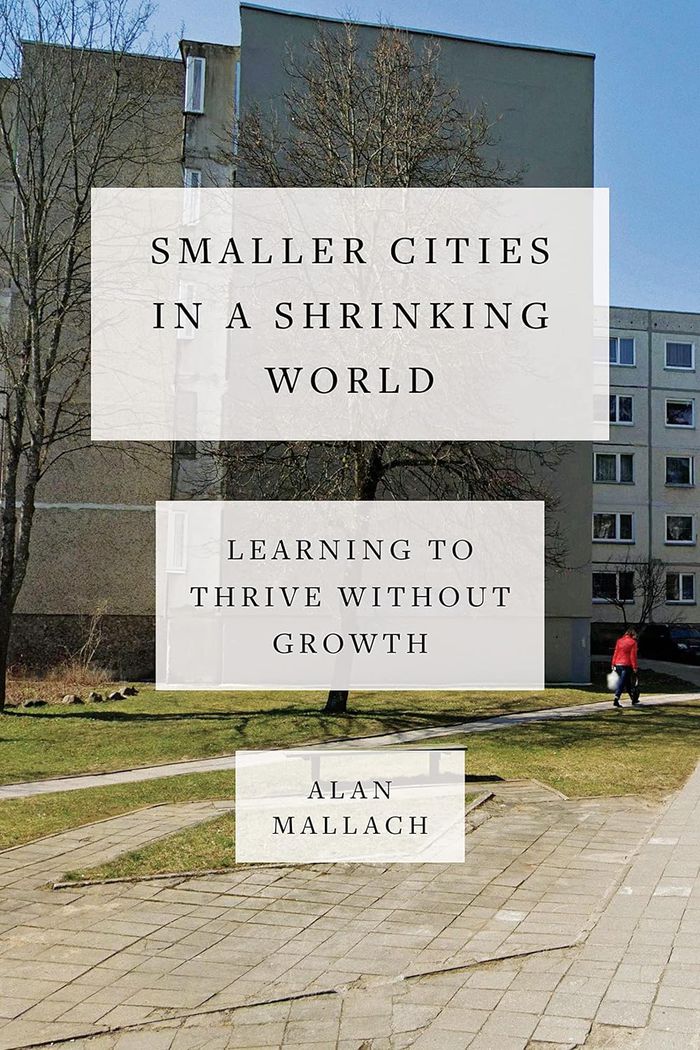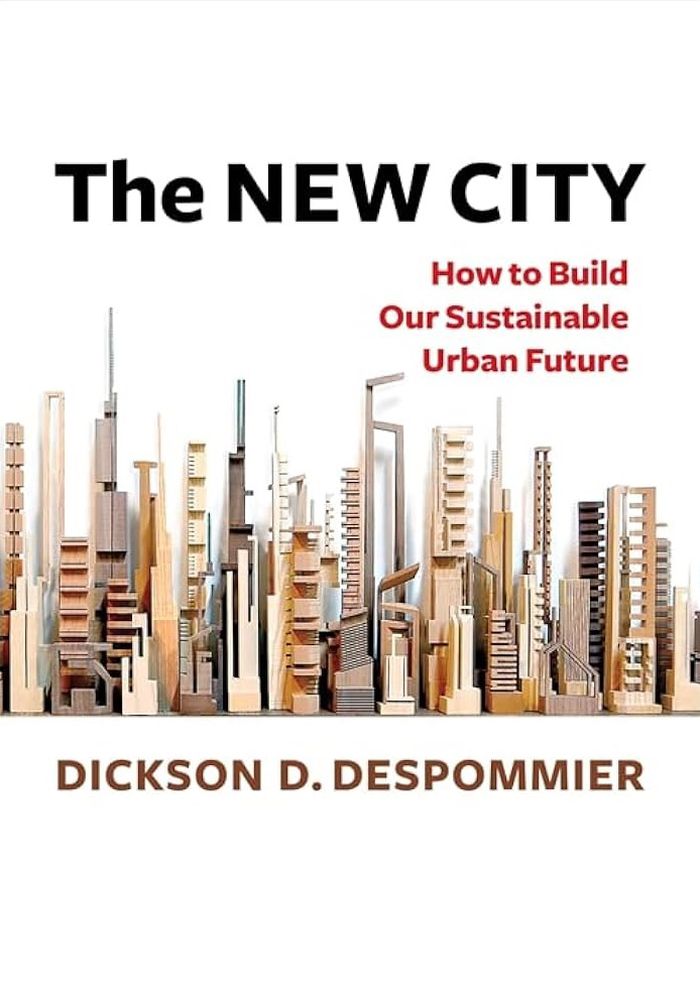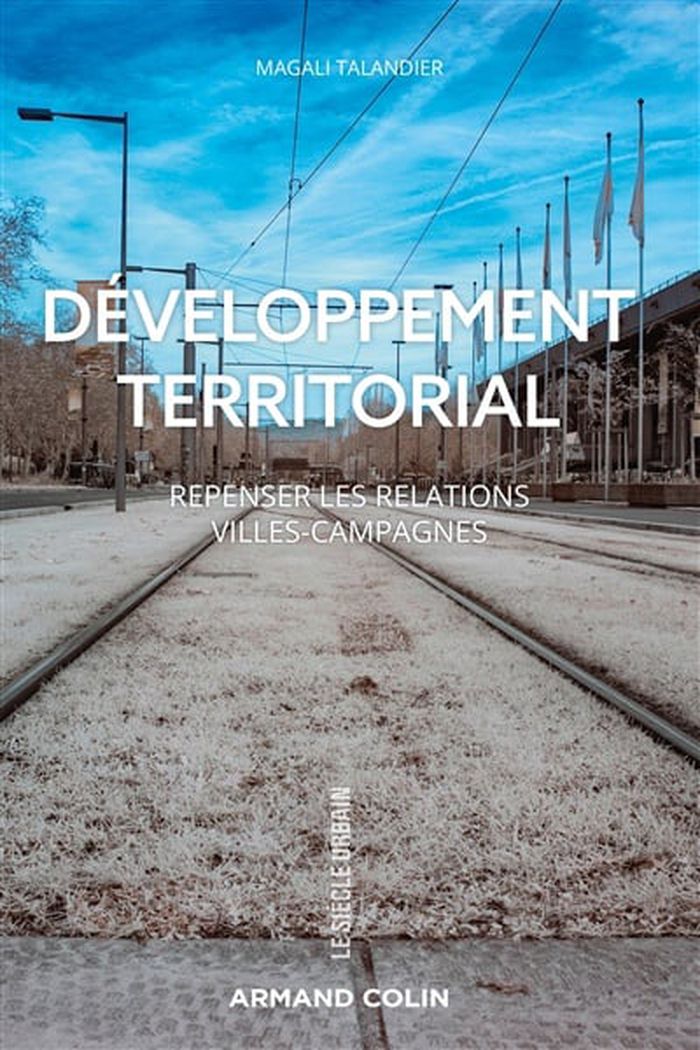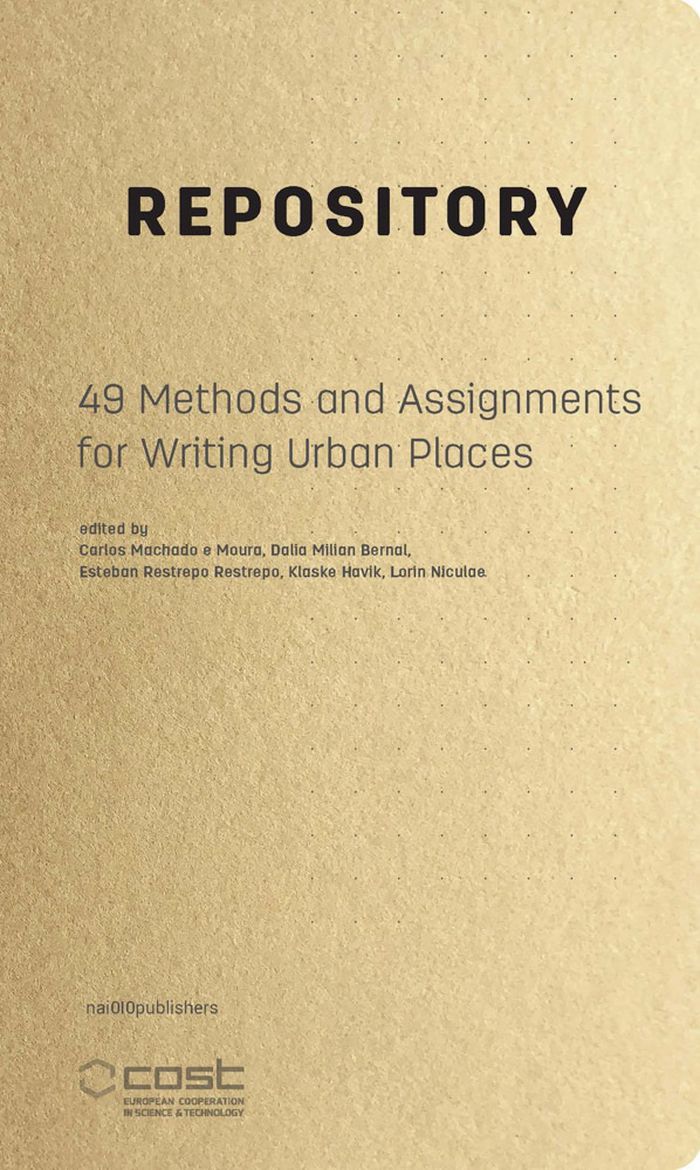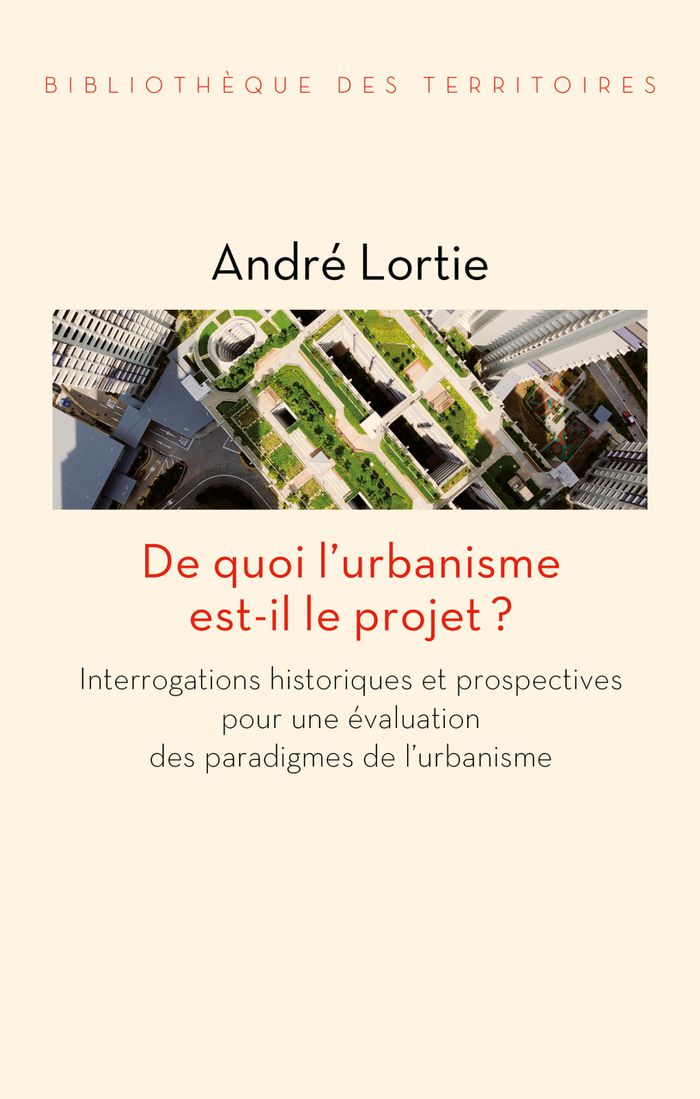$89.95
(disponible en magasin)
Résumé:
In this book, a transdisciplinary international research team presents an expanded vocabulary of urbanisation processes through a comparison of Tokyo, Hong Kong – Shenzhen – Dongguan, Kolkata, Istanbul, Lagos, Paris, Mexico City and Los Angeles. Based on a novel cartography and on detailed ethnographic and historical explorations, this book systematically analyses the(...)
Vocabularies for an urbanising planet: theory building through comparison
Actions:
Prix:
$89.95
(disponible en magasin)
Résumé:
In this book, a transdisciplinary international research team presents an expanded vocabulary of urbanisation processes through a comparison of Tokyo, Hong Kong – Shenzhen – Dongguan, Kolkata, Istanbul, Lagos, Paris, Mexico City and Los Angeles. Based on a novel cartography and on detailed ethnographic and historical explorations, this book systematically analyses the diversity of responses to urgent contemporary urban challenges. It proposes a series of new concepts that allow us to assess the practical consequences of different urban strategies in everyday life.
Théorie de l’urbanisme
$53.95
(disponible sur commande)
Résumé:
What is it about Times Square that has inspired such attention for well over a century? And how is it that, despite its many changes of character, the place has maintained a unique hold on our collective imagination? In this book, which comes twenty years after her widely acclaimed Times Square Roulette, Lynne Sagalyn masterfully tells the story of profound urban change(...)
Times Square remade: The dynamics of urban change
Actions:
Prix:
$53.95
(disponible sur commande)
Résumé:
What is it about Times Square that has inspired such attention for well over a century? And how is it that, despite its many changes of character, the place has maintained a unique hold on our collective imagination? In this book, which comes twenty years after her widely acclaimed Times Square Roulette, Lynne Sagalyn masterfully tells the story of profound urban change over decades in the symbolic space that is New York City’s Times Square. Drawing on the history, sociology, and political economy of the place, ''Times Square remade'' examines how the public-private transformation of 42nd Street at Times Square impacted the entertainment district and adjacent neighborhoods, particularly Hell’s Kitchen. Sagalyn chronicles the earliest halcyon days of 42nd Street and Times Square as the nexus of speculation and competitive theater building as well as its darkest days as vice central, and on to the years of aggressive government intervention to cleanse West 42nd Street of pornography and crime. Thematically, the author analyzes the three main forces that have shaped and reshaped Times Square—theater, real estate, and pornography—and explains the politics and economics of what got built and what has been restored or preserved. Accompanied by nearly 160 images, more than half in color, ''Times Square remade'' is a deftly woven narrative of urban transformation that will appeal as much to the general reader and New York City enthusiast as to urbanists, city planners, architects, urban designers, and policymakers.
Théorie de l’urbanisme
$39.99
(disponible sur commande)
Résumé:
We are living through a global catastrophe. Buildings affect how we feel, moment by moment, day by day. They have the power to lift us up and make us feel awestruck, playful, safe, and inspired, just as they can make us feel alienated and sad. But many of the places where we live, work, learn, and heal have become monotonous and disposable. We’re surrounded by cheap,(...)
Humanize: A maker's guide to designing our cities
Actions:
Prix:
$39.99
(disponible sur commande)
Résumé:
We are living through a global catastrophe. Buildings affect how we feel, moment by moment, day by day. They have the power to lift us up and make us feel awestruck, playful, safe, and inspired, just as they can make us feel alienated and sad. But many of the places where we live, work, learn, and heal have become monotonous and disposable. We’re surrounded by cheap, boring buildings that make people stressed, sick, and unhappy. In short, much of our world has been crafted in a way that is hostile to human experience. Now, drawing on his experience of the last thirty years in making bold, beautiful objects and buildings, Thomas Heatherwick offers both an informed critique of the inhumanity in most of today’s contemporary building design, and a rousing call for action. Looking through Heatherwick’s eyes, we see familiar landmarks and cityscapes around the world, from London, Paris, Barcelona, Singapore, New York, Vancouver, and beyond, both old and new, famous and obscure, to learn how places can either sap the life out of us—or nourish our senses and our psyche. The time has come, he says, to put emotion back at the heart of the design process, and the reasons to do so could not be more urgent. Design is not superficial: it has an impact upon economics, climate change, our mental and physical wellbeing—even the peace and cohesion of our societies.
Théorie de l’urbanisme
$37.95
(disponible sur commande)
Résumé:
In The City after Property, Sara Safransky examines how postindustrial decline generates new forms of urban land politics. In the 2010s, Detroit government officials classified a staggering 150,000 lots—more than a third of the city—as “vacant” or “abandoned.” Analyzing subsequent efforts to shrink the Motor City’s footprint and budget, Safransky presents a new way of(...)
The city after property: Abandonment and repair in postindustrial Detroit
Actions:
Prix:
$37.95
(disponible sur commande)
Résumé:
In The City after Property, Sara Safransky examines how postindustrial decline generates new forms of urban land politics. In the 2010s, Detroit government officials classified a staggering 150,000 lots—more than a third of the city—as “vacant” or “abandoned.” Analyzing subsequent efforts to shrink the Motor City’s footprint and budget, Safransky presents a new way of conceptualizing urban abandonment. She challenges popular myths that cast Detroit as empty along with narratives that reduce its historical decline to capital and white flight. In connecting contemporary debates over neoliberal urbanism to Cold War histories and the lasting political legacies of global movements for decolonization and Black liberation, she foregrounds how the making of—and challenges to—modern property regimes have shaped urban policy and politics. Drawing on critical geographical theory and community-based ethnography, Safransky shows how private property functions as a racialized construct, an ideology, and a moral force that shapes selves and worlds. By thinking the city “after property,” Safransky illuminates alternative ways of imagining and organizing urban life.
$65.95
(disponible en magasin)
Résumé:
Dans de nombreux pays du Sud, l'informalité représente une nécessité pour des citoyens qui décident d’autogérer leurs lieux de vie et de travail. Dans les villes du Nord, les pratiques informelles s’imposent plutôt comme une tentative de réparer la ville qui a été abîmée, polluée, abandonnée, et de reconstituer un tissu urbain là où celui-ci a été voué à la démolition, ou(...)
L'Urbanisme informel: Au-delà du droit à la ville
Actions:
Prix:
$65.95
(disponible en magasin)
Résumé:
Dans de nombreux pays du Sud, l'informalité représente une nécessité pour des citoyens qui décident d’autogérer leurs lieux de vie et de travail. Dans les villes du Nord, les pratiques informelles s’imposent plutôt comme une tentative de réparer la ville qui a été abîmée, polluée, abandonnée, et de reconstituer un tissu urbain là où celui-ci a été voué à la démolition, ou à l’élaboration de projets contestés. Dans les deux cas, l’informalité peut être une source d'urbanité et de créativité qui favorise l'intégration et la sociabilité. Elle participe d’un nouveau récit urbain combinant nécessité, aspirations, désirs même, et parfois résistance, voire indiscipline. Ce livre nous invite à considérer que l’informalité peut s’avérer inspirante pour aborder certains problèmes de gouvernance auxquels les villes sont actuellement confrontées.
Théorie de l’urbanisme
$43.95
(disponible sur commande)
Résumé:
Over the past hundred years, the global motto has been "more, more, more" in terms of growth - of population, of the built environment, of human and financial capital, and of all manner of worldly goods. This was the reality as the world population boomed during the 1960s and 1970s. But reality is changing in front of our eyes. Growth is already slowing down, and(...)
Smaller cities in a shrinking world: learning to thrive without growth
Actions:
Prix:
$43.95
(disponible sur commande)
Résumé:
Over the past hundred years, the global motto has been "more, more, more" in terms of growth - of population, of the built environment, of human and financial capital, and of all manner of worldly goods. This was the reality as the world population boomed during the 1960s and 1970s. But reality is changing in front of our eyes. Growth is already slowing down, and according to the most sophisticated demographers, the earth's population will begin to decline not hundreds of years from now, but within the lifetimes of many of the people now living on the planet. In ''Smaller cities in a shrinking world'', urban policy expert Alan Mallach seeks to understand how declining population and economic growth, coupled with the other forces that will influence their fates, particularly climate change, will affect the world's cities over the coming decades. What will it mean to have a world full of shrinking cities? Does it mean that they are doomed to decline in more ways than simply population numbers, or can we uncouple population decline from economic decay, abandoned buildings and impoverishment? Mallach has spent much of the last thirty or more years working in, looking at, thinking, and writing about shrinking cities-from Trenton, New Jersey, where he was director of housing and economic development, to other American cities like Detroit, Flint, and St. Louis, and from there to cities in Japan and Central and Eastern Europe. He has woven together his experience, research, and analysis in this fascinating, realistic yet hopeful look at how smaller, shrinking cities can thrive, despite the daunting challenges they face.
Théorie de l’urbanisme
$52.95
(disponible sur commande)
Résumé:
Cities are at once among humanity’s crowning achievements and core drivers of the climate crisis. Their dependence on the outside world for vital resources is causing global temperatures to rise and wildlife habitats to shrink. But we have the opportunity to make cities more sustainable by transforming the built environment. Dickson D. Despommier proposes a plan for(...)
The new city: How to build our sustainable urban future
Actions:
Prix:
$52.95
(disponible sur commande)
Résumé:
Cities are at once among humanity’s crowning achievements and core drivers of the climate crisis. Their dependence on the outside world for vital resources is causing global temperatures to rise and wildlife habitats to shrink. But we have the opportunity to make cities more sustainable by transforming the built environment. Dickson D. Despommier proposes a plan for creating a new, self-sustaining urban landscape. He argues that we can find solutions through the concept of biomimicry: emulating successful strategies found in nature. A better city is possible if we heed the lessons that forests and trees teach about how to store carbon, grow food, collect rainwater, and convert sunlight into energy. Touring established and leading-edge technologies, ''The new city'' provides a blueprint for tomorrow’s urban environment. Cities built from wood will be more resilient and less destructive than concrete and steel construction; they will also encourage reforestation, boosting carbon sequestration. Vertical farms inside city limits will supply residents with a reliable, healthy food supply. Buildings will harvest moisture from the rain and air to secure a clean water supply. Renewable energy, including not only wind, solar, and geothermal but also clear photovoltaic window glass and nonpolluting hydrogen fuel cells, will power a cleaner city.
Théorie de l’urbanisme
$42.95
(disponible sur commande)
Résumé:
La révolution industrielle, l’essor d’une économie tertiaire, puis la globalisation ont profondément modifié notre rapport à l’espace, à l’habiter, nous faisant ainsi passer d’une société rurale à une société métropolisée. Tous les territoires accompagnent, subissent, anticipent ces transformations socio-économiques. À l’heure de l’urgence climatique, les villes, à la(...)
Développement territorial : Repenser les relations villes-campagnes
Actions:
Prix:
$42.95
(disponible sur commande)
Résumé:
La révolution industrielle, l’essor d’une économie tertiaire, puis la globalisation ont profondément modifié notre rapport à l’espace, à l’habiter, nous faisant ainsi passer d’une société rurale à une société métropolisée. Tous les territoires accompagnent, subissent, anticipent ces transformations socio-économiques. À l’heure de l’urgence climatique, les villes, à la fois productrices et consommatrices de ressources, doivent inventer de nouveaux modes de développement, plus sobres et plus résilients Cet ouvrage propose une synthèse des modèles de développement territorial et une analyse de leurs impacts sociaux et environnementaux. Il présente également des exemples alternatifs sur la base de cas concrets, qui permettent de mettre à distance les concepts établis et les approches caricaturales, afin de repenser de façon systémique les liens entre villes et campagnes. Car, c’est à cette condition que les territoires pourront devenir des leviers essentiels de la transition socio-écologique.
Théorie de l’urbanisme
$58.00
(disponible sur commande)
Résumé:
''Repository: 49 methods and assignments for writing urban places'' offers a set of methods and assignments intended to stimulate new approaches in architecture, urban studies, and other fields of spatial development and to invite creative, often embodied, and sometimes playful engagements with the material and immaterial dimensions of urban places.
Repository: 49 methods and assignments for writing urban places
Actions:
Prix:
$58.00
(disponible sur commande)
Résumé:
''Repository: 49 methods and assignments for writing urban places'' offers a set of methods and assignments intended to stimulate new approaches in architecture, urban studies, and other fields of spatial development and to invite creative, often embodied, and sometimes playful engagements with the material and immaterial dimensions of urban places.
Théorie de l’urbanisme
$48.95
(disponible sur commande)
Résumé:
Pour André Lortie, les principes de l’urbanisme ne parviennent pas à résoudre la contradiction entre l’agencement des territoires et les enjeux actuels de protection de l’environnement et de développement soutenable. Afin de comprendre l’origine et les conséquences de cette disjonction, l’auteur explique comment l’urbanisme, dès son origine, a contribué au contrôle de la(...)
De quoi l'urbanisme est-il le projet ?
Actions:
Prix:
$48.95
(disponible sur commande)
Résumé:
Pour André Lortie, les principes de l’urbanisme ne parviennent pas à résoudre la contradiction entre l’agencement des territoires et les enjeux actuels de protection de l’environnement et de développement soutenable. Afin de comprendre l’origine et les conséquences de cette disjonction, l’auteur explique comment l’urbanisme, dès son origine, a contribué au contrôle de la société industrielle tout en intensifiant ses fonctions de production et de consommation. Il termine par une série d’orientations et de propositions aptes à échapper à ce déterminisme industrialiste et à sa nouvelle phase annoncée de la smart city.
Théorie de l’urbanisme
